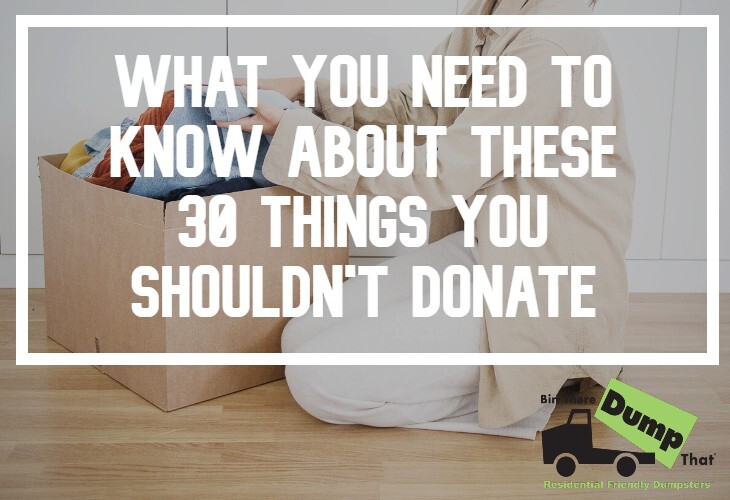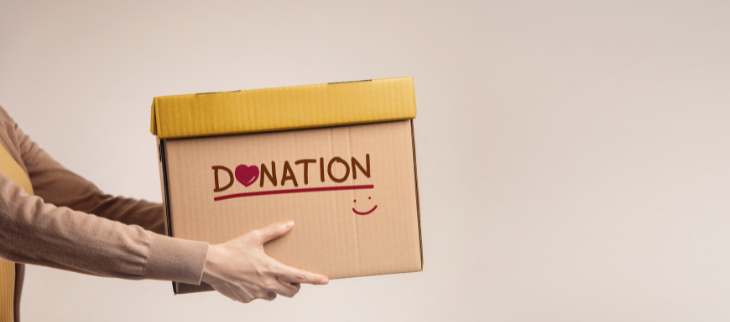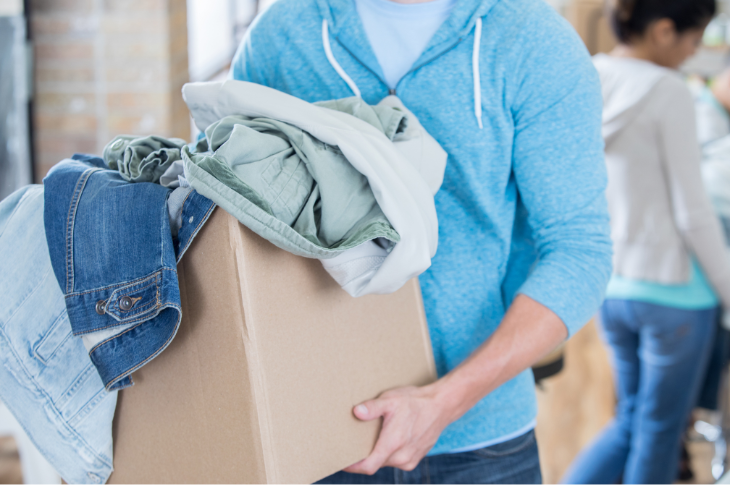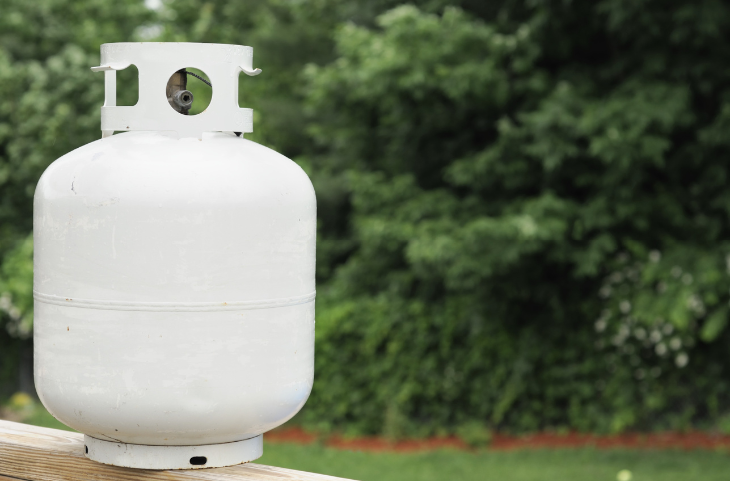
What You Need to Know About These 30 Things You Shouldn't Donate
Donating your used items that you no longer need is a great way to give back, but only if those items are safe, sanitary and in good shape. There are some things you shouldn’t donate though for a variety of reasons. Here are 30 mind blowing items you should never donate.
Items You Should Not Donate
1. Hazardous Items Such As Pesticides or Household Chemicals
You might think somebody could benefit from pesticides or household chemicals you’re not using, but they belong firmly on the things to never donate list. They can be subject to restrictions as well.
2. Used Mattresses and Bedding
When you think about things you shouldn’t donate you might not feel that an old mattress is one of them, but it is. They can be difficult to clean and many charities simply won’t accept them because of that. Donating dirty or old mattresses becomes a risk for spreading bed bugs. It's always best to consider mattress donations only if the mattress is in pristine conditions, and if the charity accepts mattress donations.
3. Items That Are On Safety Recall Lists
If you know something’s on a safety recall list it should never be donated. It’s not ethical to use a charity as a dumping ground for unwanted products and it could land you in trouble down the road. Consider the safety of the people in your community and avoid donating things on a safety recall list.
4. Items With Personal Information Such As Diaries
Some items are just too personal to ever consider donating. These are items like diaries and other things that may contain intimate details of your personal life that could fall into the wrong hands. This is especially true if you've written sensitive information, like online passwords or banking information for example. If you have a notebook or journal in good conditions, and it's only lightly been used, then tear the written pages out before considering donating them.

5. Expired Food Items
There are only two places that you should dispose of expired food items, your trash compactor or your organic waste container. These are definitely things you shouldn’t donate in any situation. Always read the expiry date on your packaged foods if you're considering donating it. While you may have good intentions, if the food is expired, it will only do more harm than good to whoever consumes it.
6. Medicine and Some Medical Equipment
Medicine is prescribed to you on an individual basis and giving medicine to the wrong person can be extremely dangerous. Even medical equipment like syringes that haven’t been used should not be donated. It’s impossible for a charity to be sure they are safe to be used so they will reject them every time.
7. Car Seats
You might think you’re being generous by donating your old baby car seat to a charity for a needy family, but they are also things you shouldn’t donate. These seats have expiry dates and using them after that can be dangerous. You can look for the manufacturers expiry date underneath the car seat. Typically they should be replaced every 6 to 10 years. As the car seat ages, there's wear and tear, meaning it is no longer becomes suitable for the safety of the child using it.

8. Fireworks and Ammunition
While you might feel good about donating fireworks to a charity for a 4th of July party you shouldn’t do it. Fireworks are governed by strict regulations and they should never be donated.
9. General Goods That Are Dirty or Worn Out
If you have anything that’s dirty and worn out and you’re looking to get it off your hands, donating it to a charity is not the way to go. They don’t have any use for unsanitary items that belong at the local landfill.
Clothes You Shouldn’t Donate
10. Clothing That’s Ripped, Stained or Full of Holes
While ripped clothing might be the height of fashion, that doesn't mean the local Goodwill or Salvation Army branch wants to take them off your hands. Keep donating clothing in great shape, free of rips, tears and holes, but avoid those fashion statement items.
11. Don’t Donate Adult Clothing to Children’s Charities
When you’re donating to a charity it’s best to be careful to make sure you’re making the right donation to the right organization. For example, donating adult clothing to a children’s charity doesn’t make a lot of sense and just creates extra unnecessary work for the volunteers that work there.

12. Illegal Items Such As Unregistered Firearms
Even states with liberal gun rules have rules when it comes to firearms. They are without a doubt things you shouldn’t donate. Keep them safely in your home or look for a safe, legal disposal site for your old firearms.
13. Batteries and Electronics
Batteries and electronics contain components that can cause harm or pose a risk to the environment if not handled the right way. There may be places that will happily take old electronics as teaching items such as schools, but you’ll want to do your homework on this one.
14. Items That May Be Infested or Full of Mold
If you have something in your home that’s full of mold or potentially infested with unwanted critters you should never consider donating them. They’re not safe for you or anybody else. The best place for them is in the trash.
15. Flood Damaged Items
No matter how high quality an item is it shouldn’t be donated if it’s been damaged in a flood. You probably shouldn’t try to upcycle it either due to the potential for mold and other contaminants. If you’re in doubt don’t risk passing on the problem to someone in need. They belong in the dumpster you rented for flood cleanup, not at a local charity.
16. Old Gas Tanks or Propane Tanks
Gas tanks and propane tanks come with an expiry date and even if they haven’t expired yet, they are things you shouldn’t donate. Their flammable nature makes them a risk for any new owner and it’s best to find a safe drop off location for them instead.

17. Heavy Items That Are Difficult To Handle
That family display case that weighs well over a hundred pounds may be a beautiful item, but you probably shouldn’t donate it. Most charities will refuse it anyway as it’s too heavy to work with. Try to find a family member that wants it or look for other alternatives.
18. Broken Appliances
Broken appliances may make a great project for somebody, but not for a charity. They’re looking for usable items that don’t require a lot of work before finding them a new home. If your kitchen appliance is no longer working, consider tossing it or sending it in to be repaired.
19. Items With Sharp Edges
You have to be careful about donating items with sharp edges whether they’re furniture or anything else. They can pose a safety risk and while it’s great to give to charity, you don’t want to donate something that could injure someone else. If it's old furniture that is no longer usable, it's best to just toss it.
20. Sensitive Religious Materials
Religious materials can be a sensitive topic for obvious reasons. If you have rare texts you might be able to find a local church or religious group that would be happy to take them, but donating them to a general charity organization can easily lead to misunderstanding and should be avoided.
21. Valuable Antiques and Collectibles
Charitable organizations may be more than happy to take your valuable antiques and rare collectibles off your hands, but you might not be when you realize what you’ve done. The best approach is to sell these items to antique shops and collectors and then make a donation to your charity of choice from the proceeds.

22. Personal Items Such As Toothbrushes
You probably would never consider using someone else's toothbrush and for good reason — it’s just unsanitary. Charities don’t want to receive items like these either. Toothbrushes are certainly some things you shouldn't donate.
23. Outdated Tech
If you don’t have a use for outdated tech, a charity probably doesn’t either. You may be able to find a school that can use it for teaching purposes. If not, look for an electronic waste drop off near you.
24. Items That Are Protected from Resale By Copyright
While it’s rare, an item may be protected from resale by copyright or other protections. If you think you may have an item in this category it shouldn’t be donated either.
25. Items That Don’t Meet Current Safety Standards
Even if that old bicycle helmet looks like it’s brand new it should never be donated. Like other safety related items they have an expiry date so it’s best to toss them in the trash if you no longer have a use for them.

26. Used Underwear
It probably goes without saying, but old used underwear should not be donated under any circumstances. It’s not sanitary and won’t be accepted by a charity. Toss your old underwear rather than donating it. For a sustainable solution, look for a textile recycling centre.
27. Items With Missing Pieces
If you’re looking to get rid of something because it’s missing parts you shouldn’t donate it. A jigsaw puzzle with half the pieces missing is of no use to anyone.
How to Donate Household Items
28. Winter Clothing in Summer
Some items are seasonal and that makes them tough to donate at certain times of the year. Winter clothing in summer is a great example. It’s best to hold onto these for a while and donate them at the right time of year.
29. Items That Don’t Fit The Age Group
There’s always a need for donated toys, but they have to be age appropriate. Donating toys for older kids to preschools can be dangerous and are unlikely to be accepted. Consider approaching organizations like the Goodwill or the Salvation Army instead.
30. Anything Illegal Or Controlled in Your Area
If you’re looking to get rid of controlled substances or illegal items it shouldn’t be at your local charity. It’s best to examine your options carefully to find a better solution.
Related Blog Posts
- Revive Your Home for Spring with This Spring Home Maintenance Checklist
- 10 New Home Trends That Will Make Your Friends Jealous
- How Our Dumpsters Support Realtors and Property Managers: A Comprehensive Guide
- 12 Jaw-Dropping Clutter Statistics That Will Make You Want to Declutter Today!
- Unlocking Space: The Complete Guide on Pocket Door Installation
- Step by Step Guide on How to Install Carpet Like a Pro



